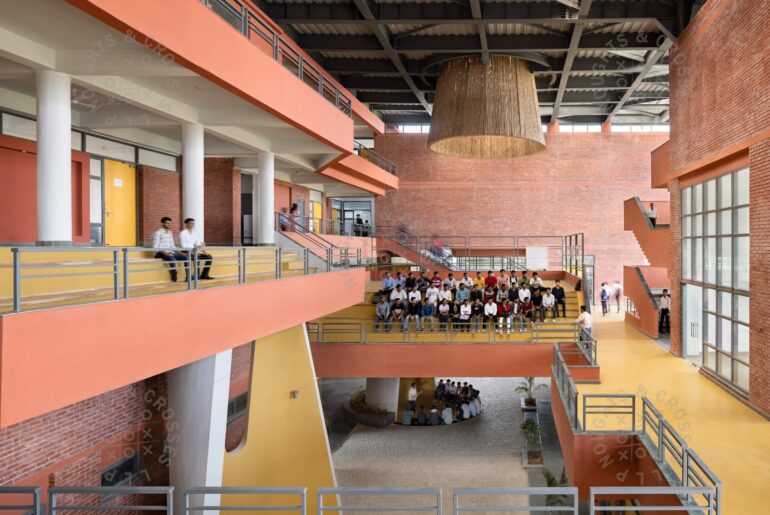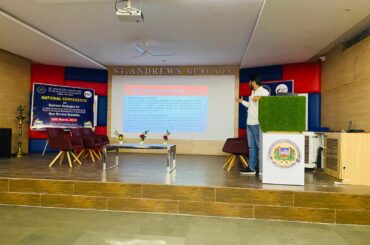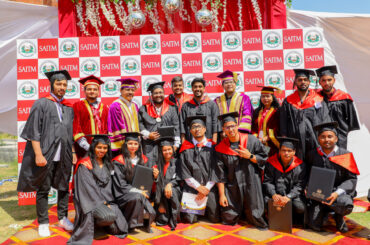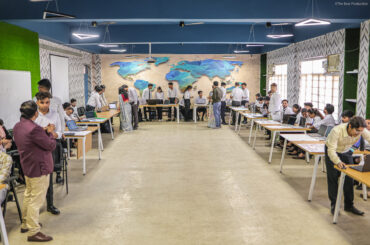Best Colleges for BTech
The Best College for BTech programs stands out with state-of-the-art research facilities, experienced faculty, and strong industry connections, ensuring high placement rates.
They offer a comprehensive curriculum that covers the latest advancements in technology and engineering, fostering innovation and practical skills among students.
Choosing the Best College for BTech is a crucial decision that can shape your future career.
Here are some key aspects to consider when looking for the best B.Tech colleges:
1. Academic Excellence:
Look for colleges with a strong reputation for academic rigor and quality education.
Check their accreditation status and ranking by recognized bodies like NIRF (National Institutional Ranking Framework).
2. Faculty:
Research the qualifications and experience of the faculty members.
A college with a good mix of experienced professors and young, dynamic teachers can provide a balanced learning experience.
3. Infrastructure:
Ensure the college has state-of-the-art infrastructure, including modern classrooms, well-equipped labs, libraries, and research facilities.
Campus facilities like hostels, sports complexes, and recreational areas also play a significant role.
4. Specializations Offered:
Check the availability of specializations in B.Tech that align with your career goals (e.g., Computer Science, Mechanical, Civil, Electrical, etc.).
Look for colleges offering emerging fields like Artificial Intelligence, Data Science, and Cybersecurity.
5. Industry Connections:
Colleges with strong ties to industry can provide better internship and placement opportunities.
Check the college’s track record for campus placements and the companies that recruit from there.
6. Research Opportunities:
Institutions that focus on research and development can offer students the chance to work on cutting-edge projects and innovations.
Look for colleges with dedicated research centres and funding for student projects.
7. Alumni Network:
A strong alumni network can be invaluable for mentorship and job opportunities.
Check for active alumni associations and their involvement in the college’s activities.
8. Location:
The geographical location of the college can influence internship opportunities and exposure to industries.
Consider the cost of living and climate as well.
9. Fees and Scholarships:
Compare the fee structures of different colleges and check for the availability of scholarships and financial aid.
Consider the return on investment (ROI) in terms of the average salary packages offered during placements.
10. Student Life:
A vibrant campus life with clubs, societies, and extracurricular activities can enhance your overall college experience.
Look for colleges that promote holistic development through cultural, technical, and sports events
Some of the most opted courses in India and St. Andrews college or different Engineering college or Management colleges are as follows:-
BTech Courses Overview
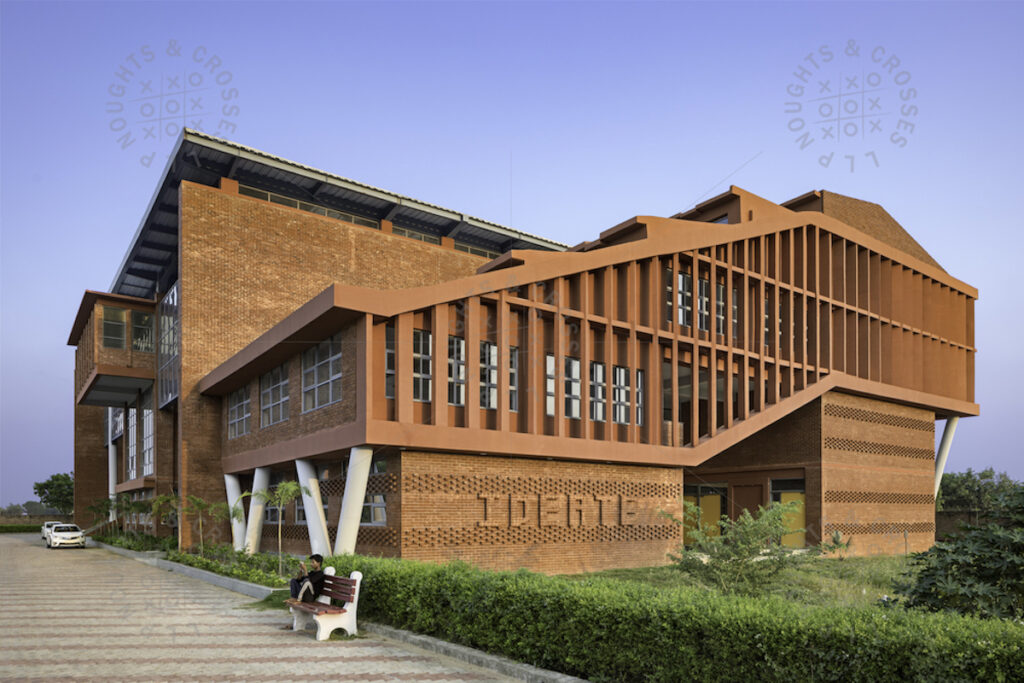
A Bachelor of Technology (BTech) degree is a four-year undergraduate program offering a strong foundation in engineering, technology, and technical education. At the Best College for BTech, the program combines theoretical coursework, practical labs, and project work.
Here’s an in-depth look at the various aspects of BTech courses:
Computer Science and Engineering (CSE):
Focus: Programming, algorithms, data structures, software development, computer networking, database management, and artificial intelligence.
Career Paths: Software Developer, Data Scientist, Systems Analyst, Network Engineer, AI Specialist.
Electronics and Communication Engineering (ECE):
Focus: Electronic circuits, communication systems, signal processing, microprocessors, VLSI design.
Career Paths: Electronics Engineer, Communication Engineer, Embedded Systems Engineer, Network Engineer.
Mechanical Engineering:
Focus: Mechanics, thermodynamics, materials science, manufacturing processes, robotics.
Career Paths: Mechanical Engineer, Automotive Engineer, HVAC Engineer, Product Design Engineer.
Civil Engineering:
Focus: Structural engineering, construction materials, geotechnical engineering, transportation engineering, environmental engineering.
Career Paths: Civil Engineer, Structural Engineer, Construction Manager, Geotechnical Engineer.
Electrical Engineering:
Focus: Electrical circuits, power systems, control systems, instrumentation, renewable energy.
Career Paths: Electrical Engineer, Power Systems Engineer, Control Systems Engineer, Renewable Energy Specialist.
Information Technology (IT);
Focus: Software development, web technologies, database management, cybersecurity, networking.
Career Paths: IT Consultant, Network Administrator, Database Administrator, Cybersecurity Analyst.
Chemical Engineering;
Focus: Chemical processes, material science, thermodynamics, process control, biotechnology.
Career Paths: Chemical Engineer, Process Engineer, Materials Scientist, Biotechnologist.
Aerospace Engineering:
Focus: Aerodynamics, propulsion systems, aircraft structures, avionics, space technology.
Career Paths: Aerospace Engineer, Aircraft Designer, Avionics Engineer, Spacecraft Engineer.
Biotechnology;
Focus: Genetics, biochemistry, microbiology, molecular biology, bioinformatics.
Career Paths: Biotechnologist, Research Scientist, Bioinformatics Specialist, Genetic Engineer.
Automobile Engineering:
Focus: Vehicle design, automotive electronics, engine systems, safety engineering, fuel technology.
Career Paths: Automobile Engineer, Vehicle Dynamics Specialist, Safety Engineer, Automotive Design Engineer.
Structure of BTech Programs:
Duration:
The typical duration of a BTech program is four years, divided into eight semesters.
Core Curriculum:
The initial semesters usually cover foundational subjects like mathematics, physics, chemistry, and basic engineering principles.
Subsequent semesters focus on specialized courses relevant to the chosen branch of engineering.
Laboratory Work:
Practical lab sessions are an integral part of the curriculum, allowing students to apply theoretical knowledge in a hands-on environment.
Projects and Internships:
Students are often required to undertake projects, mini-projects, and internships to gain practical experience and industry exposure.
Electives:
Many programs offer elective courses, enabling students to explore topics of interest beyond the core curriculum.
Capstone Project:
The final year typically includes a capstone project, where students work on a significant project, often in collaboration with industry partners.
Admission Process:
Entrance Exams:
Admission to BTech programs is generally based on entrance exams such as JEE Main, JEE Advanced, state-level exams (e.g., MHT CET, KCET), and exams conducted by private universities (e.g., BITSAT, VITEEE).
Eligibility Criteria:
Students must have completed 10+2 or equivalent with Physics, Chemistry, and Mathematics as core subjects.
A minimum percentage of marks in the qualifying examination is usually required.
Counselling and Seat Allocation:
Based on entrance exam scores, students participate in counseling sessions for seat allocation in various colleges.
Career Prospects:
Placements:
Many engineering colleges have dedicated placement cells that assist students in securing job offers from reputed companies.
Companies from various sectors, including IT, manufacturing, automotive, electronics, and construction, recruit BTech graduates.
Higher Studies:
Graduates can pursue higher studies like MTech, MBA, or MS for specialized knowledge and better career prospects.
Entrepreneurship:
Engineering graduates with innovative ideas and a business mindset can venture into entrepreneurship and startups.
Research and Development:
Those interested in research can join R&D departments of companies or pursue Ph.D. programs.
Emerging Trends and Specializations:
Artificial Intelligence and Machine Learning:
Focus on developing intelligent systems and algorithms for data analysis and automation.
Data Science and Big Data Analytics:
Emphasis on extracting insights from large datasets and applying statistical and computational techniques.
Cybersecurity:
Focus on protecting systems and networks from cyber threats and ensuring data privacy.
Internet of Things (IoT):
Study of interconnected devices and systems that communicate and share data.
Renewable Energy Engineering:
Focus on sustainable energy sources like solar, wind, and bioenergy.
Robotics and Automation:
Study of designing and developing robots and automated systems for various applications.
Admission Process to Engineering Colleges in India
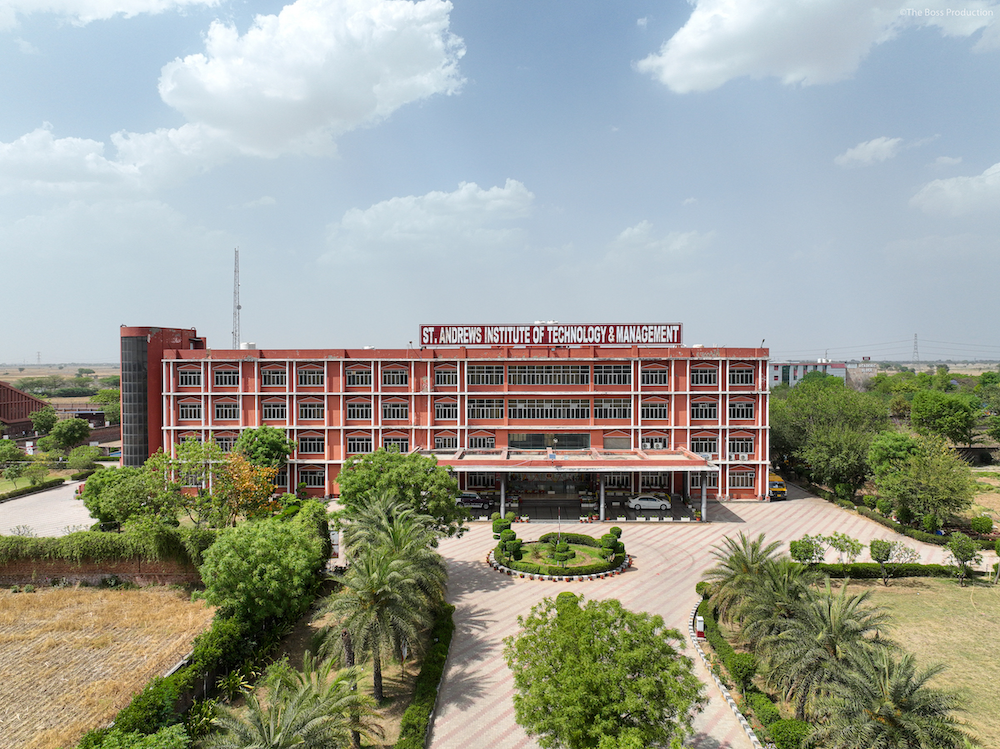
The admission process to the Best College for BTech in India generally involves several key steps.
Here’s an overview:
Eligibility Criteria
Educational Qualification: Completion of 10+2 (or equivalent) with Physics, Chemistry, and Mathematics as core subjects.
Minimum Marks: Generally, a minimum aggregate score of 50-60% in the qualifying examination is required. Specific criteria may vary by college and category (General, SC/ST, OBC, etc.).
Entrance Examinations
National Level Exams:
JEE Main
Conducted by the National Testing Agency (NTA), it is the primary entrance exam for admission to NITs, IIITs, and many other centrally funded technical institutions.
JEE Advanced
For admission to the Indian Institutes of Technology (IITs), candidates must first qualify JEE Main.
State Level Exams: Various states conduct their own entrance exams, such as:
MHT CET (Maharashtra)
KCET (Karnataka)
WBJEE (West Bengal)
AP EAMCET (Andhra Pradesh), etc.
Institutional Exams: Some private and deemed universities conduct their own entrance exams, such as:
BITSAT (Birla Institute of Technology and Science)
VITEEE (Vellore Institute of Technology)
Application Process
Online Registration: Candidates must register for the entrance exam on the respective official websites.
Filling Application Form: Complete the application form with personal, academic, and other relevant details.
Uploading Documents: Upload scanned copies of required documents, such as photographs, signature, and educational certificates.
Application Fee: Pay the application fee online through net banking, credit/debit card, or other available methods.
Admit Card and Examination
Hall Ticket: Download the admit card from the official website once it is released.
Examination: Appear for the entrance examination at the designated center on the scheduled date.
Result Declaration
Outcomes: Check the results on the official website of the respective entrance exam.
Rank/Score Card: Download the rank or score card.
Counseling and Seat Allotment
Registration for Counseling : Register for the counseling process of the respective exam.
Choice Filling: Fill in choices of preferred colleges and courses.
Document Verification: Attend the document verification process with all required original documents.
Seat Allotment: Seats are allotted based on rank, preferences, and availability. The allotment result is usually released in multiple rounds.
Acceptance and Fee Payment: Accept the allotted seat and pay the requisite admission fee to confirm the admission.
Reporting to College
Admission Confirmation: Report to the allotted college within the stipulated time frame for further admission formalities.
Commencement of Classes: Attend the orientation and begin classes as per the academic schedule.
Entrance Exams for BTech
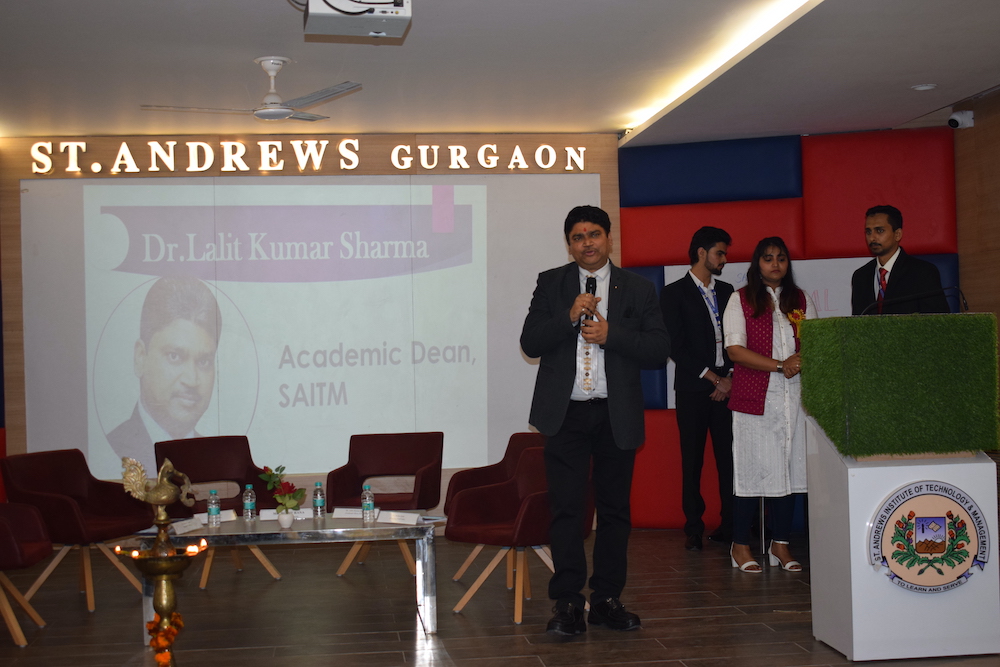
Here are some of the major entrance exams for BTech admissions to the Best College for BTech in India:
JEE Main (Joint Entrance Examination Main)
Conducted by: National Testing Agency (NTA)
Purpose: Admission to various undergraduate engineering programs at NITs, IIITs, and other institutions. It’s also the qualifying exam for JEE Advanced.
JEE Advanced (Joint Entrance Examination Advanced)
Conducted by: IITs is One of the Best Technology Delhi Indian Institute
Purpose: Admission to IITs. Candidates must qualify in the entrance exam JEE Main to be eligible for the subsequent entrance exams, JEE Advanced.
BITSAT (BITS Admission Test)
Conducted by: BITS Pilani
Purpose: Admission to BTech programs at BITS Pilani, BITS Goa, and BITS Hyderabad.
VITEEE (VIT Engineering Entrance Examination)
Conducted by: VIT University
Purpose: Admission to BTech programs at VIT University campuses in Vellore, Chennai, Bhopal, and Amaravati.
MHT CET (Maharashtra Common Entrance Test)
Conducted by: State Common Entrance Test Cell, Maharashtra
Purpose: Admission to engineering programs in Maharashtra.
KCET (Karnataka Common Entrance Test)
Conducted by: Karnataka Examination Authority (KEA)
Purpose: Admission to BTech programs in Karnataka.
WBJEE (West Bengal Joint Entrance Examination)
Conducted by: West Bengal Joint Entrance Examination Board
Purpose: Admission to engineering programs in West Bengal.
KEAM (Kerala Engineering Architecture Medical)
Conducted by: Commissioner for Entrance Exams, Kerala
Purpose: Admission to engineering programs in Kerala.
Various Specializations Offered in Various Engineering Colleges
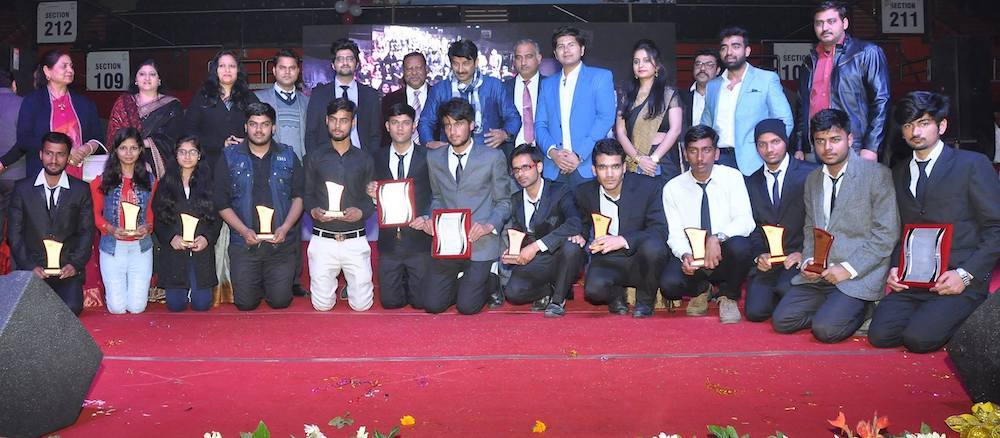
The Best College for BTech in India offers a wide range of specializations to cater to the diverse interests and career goals of students.
Here’s an overview of the common and emerging specializations available in various engineering colleges:
Computer Science Engineering (CSE):
Focus: Programming, algorithms, data structures, software development, computer networks, databases, artificial intelligence.
Career Paths: Software Developer, Data Scientist, System Analyst, Network Engineer, AI Specialist.
Electronics and Communication Engineering [ECE]
Focus: Electronic circuits, communication systems, signal processing, microprocessors, VLSI design.
Career Paths: Electronics Engineer, Communication Engineer, Embedded Systems Engineer, Network Engineer.
Mechanical Engineering;
Focus: Mechanics, thermodynamics, materials science, manufacturing processes, robotics.
Career Paths: Mechanical Engineer, Automotive Engineer, HVAC Engineer, Product Design Engineer.
Civil Engineering;
Focus: Structural engineering, construction materials, geotechnical engineering, transportation engineering, environmental engineering.
Career Paths: Civil Engineer, Structural Engineer, Construction Manager, Geotechnical Engineer.
Electrical Engineering;
Focus: Electrical circuits, power systems, control systems, instrumentation, renewable energy.
Career Paths: Electrical Engineer, Power Systems Engineer, Control Systems Engineer, Renewable Energy Specialist.
Information Technology (IT):
Focus: Software development, web technologies, database management, cybersecurity, networking.
Career Paths: IT Consultant, Network Administrator, Database Administrator, Cybersecurity Analyst.
Chemical Engineering:
Focus: Chemical processes, material science, thermodynamics, process control, biotechnology.
Career Paths: Chemical Engineer, Process Engineer, Materials Scientist, Biotechnologist.
Aerospace Engineering;
Focus: Aerodynamics, propulsion systems, aircraft structures, avionics, space technology.
Career Paths: Aerospace Engineer, Aircraft Designer, Avionics Engineer, Spacecraft Engineer.
Biotechnology:
Focus: Genetics, biochemistry, microbiology, molecular biology, bioinformatics.
Career Paths: Biotechnologist, Research Scientist, Bioinformatics Specialist, Genetic Engineer.
Automobile Engineering;
Focus: Vehicle design, automotive electronics, engine systems, safety engineering, fuel technology.
Career Paths: Automobile Engineer, Vehicle Dynamics Specialist, Safety Engineer, Automotive Design Engineer.
Fees Structure of Engineering Colleges in India
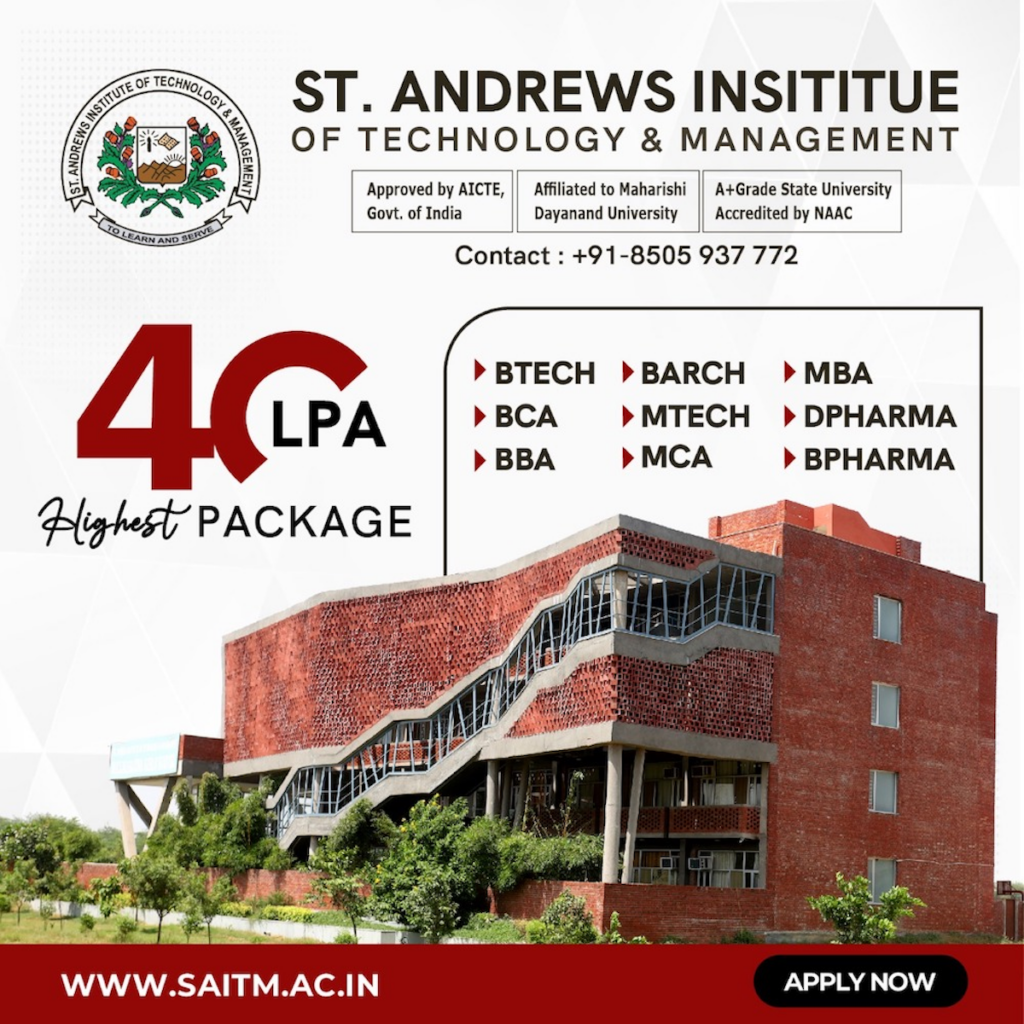
The fee structure for the Best College for BTech in India varies significantly depending on whether the institution is government-run or private, as well as its reputation, location, and specific programs offered.
Here is an overview of the fee structures for different types of engineering colleges in India:
Government Engineering Colleges
Indian Institutes of Technology (IITs)
Tuition Fees: Approximately INR 2 to 2.5 lakhs per year.
Other Fees: Additional costs for hostel, mess, and other expenses can range from INR 1 to 1.5 lakhs per year.
National Institutes of Technology (NITs)
Tuition Fees: Approximately INR 1.25 to 1.75 lakhs per year.
Other Fees: Hostel and other expenses typically range from INR 80,000 to 1.2 lakhs per year.
State Government Engineering Colleges
Tuition Fees: Generally between INR 20,000 and 1 lakh per year.
Other Fees: Hostel and other expenses can range from INR 40,000 to 80,000 per year.
Private Engineering Colleges
Top Private Colleges
Tuition Fees: Approximately INR 2 to 4 lakhs per year.
Other Fees: Hostel and additional expenses can range from INR 1 to 2 lakhs per year.
Mid-Tier Private Colleges
Tuition Fees: Typically between INR 1 and 2 lakhs per year.
Other Fees: Hostel and other expenses usually range from INR 50,000 to 1 lakh per year.
BTech Curriculum
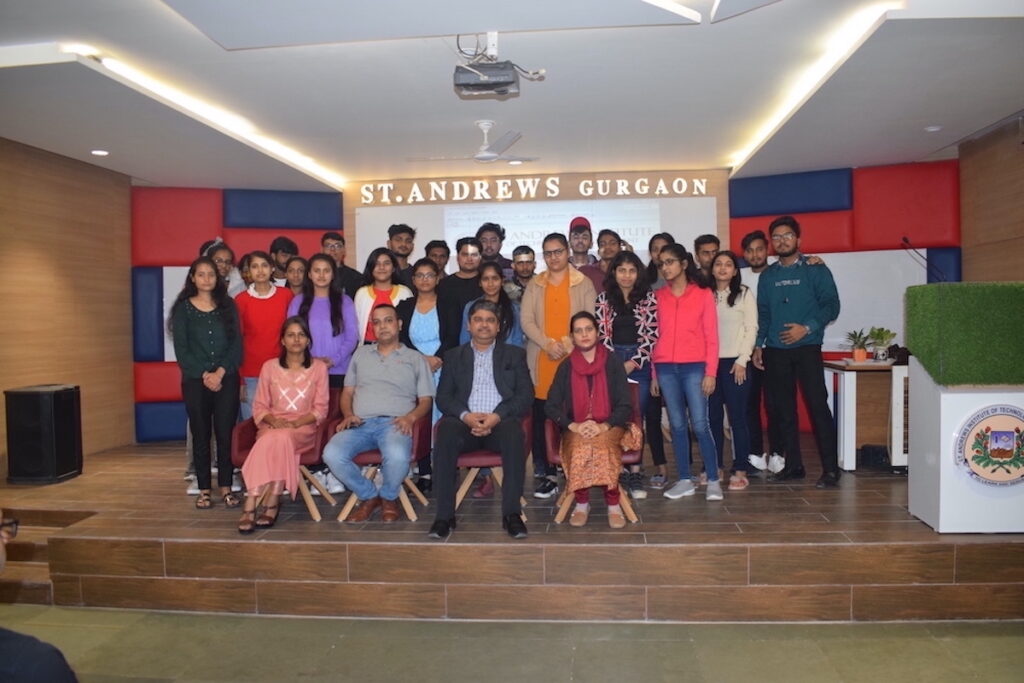
The Bachelor of Technology (BTech) at the Best College for BTech is a comprehensive degree program covering various engineering disciplines. The syllabus spans four years, divided into eight semesters, and includes core engineering principles, specialized technical courses, elective courses, and practical experiences.
Generic Outline of the BTech Syllabus:
Semester 1
Mathematics I: Calculus and differential equations.
Physics: Fundamentals of mechanics, sound, and thermodynamics.
Chemistry: Introduction to organic and inorganic chemistry.
Engineering Mechanics: Basics of statics and dynamics.
Introduction to Engineering: Overview of various engineering disciplines.
Basic Electrical Engineering, Fundamental electrical concepts and circuits.
Semester 2
Mathematics II: Advanced calculus and linear algebra.
Material Science: Properties and applications of engineering materials.
Engineering Drawing: Technical drawing and CAD fundamentals.
Computer Programming: Introduction to programming languages such as C or Python.
Environmental Studies: Study of environmental science and engineering.
Basic Electronics Engineering: Basics of electronic devices and circuits.
Semester 3
Mathematics III: Often includes numerical methods and complex variables.
Strength of Materials: Analysis of stress and strain in materials.
Thermodynamics: Basic laws and applications in engineering.
Fluid Mechanics: Fundamentals of fluid behavior and its applications.
Electrical Machines: Introduction to transformers and rotating machines.
Data Structures and Algorithms: Organizing data and algorithm efficiency.
Semester 4
Kinematics of Machinery: Analysis of motion in machinery.
Heat and Mass Transfer: Study of heat exchange and mass transport processes.
Control Systems: Basic principles of control engineering.
Analog and Digital Electronics: Study of analog circuits and digital systems.
Manufacturing Technology: Overview of manufacturing processes and systems.
Microprocessors and Microcontrollers: Basics of microprocessor architecture and programming.
Semester 5
Machine Design: Design of machine elements using principles of mechanics.
Power Systems: Analysis of electrical power systems.
Signal and Systems: Fundamentals of signal processing.
Operating Systems: Principles of operating system design and function.
Database Management Systems: Concepts and architecture of database systems.
Elective I: Specialized courses based on the student’s interest.
Semester 6
Industrial Engineering: Efficiency optimization techniques in production.
Embedded Systems: Design and development of embedded systems.
Communication Systems: Basics of analog and digital communication.
Software Engineering: Software development lifecycle and methodologies.
Elective II: Further specialized courses.
Semester 7
Project Work I: Initial phase of a comprehensive engineering project.
Renewable Energy Sources: Study of alternative energy technologies.
VLSI Design: Introduction to very large-scale integration design.
Elective III: Advanced topics in specific engineering fields.
Internship: Practical training in industry.
Semester 8
Project Work II: Completion and presentation of the engineering project.
Management: Basics of engineering management and economics.
Elective IV: Additional specialized courses.
Elective V: Further in-depth study in chosen areas.
Affordable BTech Colleges in India
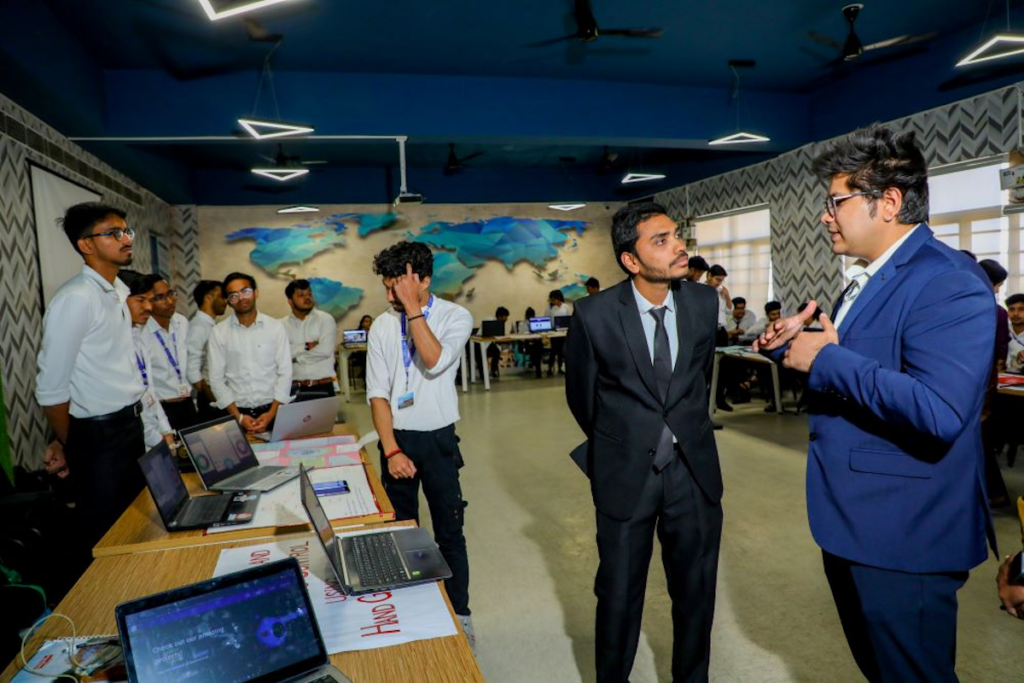
When searching for the Best College for BTech in India, consider both government and private institutions that offer quality education at an affordable cost.
Here are some options across different categories:
Government Colleges
Indian Institutes of Technology (IITs)
While IITs are prestigious and have higher tuition fees, they offer various scholarships and financial aid to make education affordable.
- Tuition Fees: ₹2,00,000 – ₹2,50,000 per year
- Additional Costs: Hostel, mess, library, and other fees (₹40,000 – ₹60,000 per year)
National Institutes of Technology (NITs)
NITs are another group of premier government engineering colleges with relatively lower fees compared to IITs.
- Tuition Fees: ₹1,25,000 – ₹1,50,000 per year
- Additional Costs: Hostel, mess, library, and other fees (₹30,000 – ₹50,000 per year)
Indian Institutes of Information Technology (IIITs)
IIITs focus on Information Technology and related fields.
- Tuition Fees: ₹1,80,000 – ₹2,00,000 per year
- Additional Costs: Hostel, mess, library, and other fees (₹30,000 – ₹50,000 per year)
State Government Colleges
State-run colleges are generally more affordable, especially for residents of the state.
- Tuition Fees: ₹50,000 – ₹1,00,000 per year
- Additional Costs: Hostel, mess, library, and other fees (₹20,000 – ₹40,000 per year)
Affordable Private Colleges
St. Andrews Institute of Technology & Management, Delhi NCR
Tuition Fees: ₹98,500 per year
- Additional Costs: Includes hostel fees, mess charges, and transportation charges
Other Affordable Private Institutions
These institutions offer quality education at reasonable costs.
- Tuition Fees: ₹1,00,000 – ₹2,50,000 per year
- Additional Costs: Hostel, mess, library, and other fees (₹30,000 – ₹60,000 per year)
Deemed Universities
Affordable Deemed Universities
These universities offer competitive pricing along with good education standards.
- Tuition Fees: ₹2,00,000 – ₹3,50,000 per year
- Additional Costs: Hostel, mess, library, and other fees (₹40,000 – ₹70,000 per year)
- Examples: Shanmugha Arts, Science, Technology & Research Academy (SASTRA), Thapar Institute of Engineering & Technology
Types of Engineering Colleges for BTech
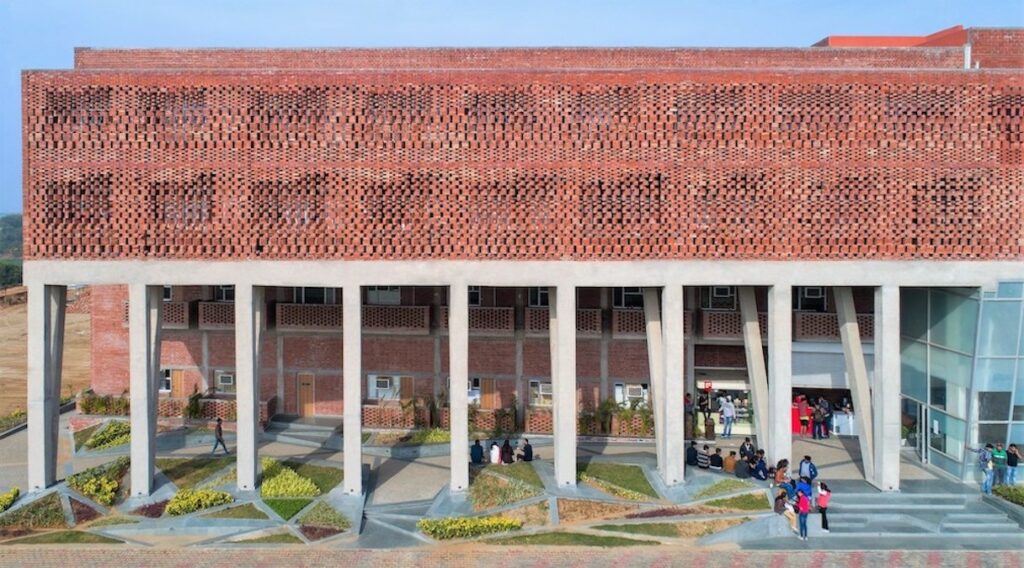
Here’s a overview of various types of engineering colleges in India:
Indian Institutes of Technology (IITs)
- Overview: Prestigious public technical universities known for their high standards in education and research.
- Funding: Central Government.
- Characteristics: Recognized for top-notch faculty, advanced research facilities, and excellent infrastructure.
- Examples: IIT Bombay, IIT Delhi, IIT Madras.
National Institutes of Technology (NITs)
- Overview: Autonomous public engineering institutions offering quality education.
- Funding: Central Government.
- Characteristics: Renowned for their strong academic programs, solid infrastructure, and impressive placement records.
- Examples: NIT Trichy, NIT Surathkal, NIT Warangal.
Indian Institutes of Information Technology (IIITs)
- Overview: Institutes dedicated to IT and computer science education and research.
- Funding: Central Government, State Governments, and private partnerships.
- Characteristics: Specialize in IT-focused courses with extensive industry collaborations.
- Examples: IIIT Hyderabad, IIIT Allahabad, IIIT Bangalore.
State Government Engineering Colleges
- Overview: Public engineering colleges managed and funded by state governments.
- Funding: State Government.
- Characteristics: Offer affordable education with a focus on regional needs.
- Examples: College of Engineering, Guindy (Tamil Nadu), Jadavpur University (West Bengal), Punjab Engineering College (Chandigarh).
Private Engineering Colleges:
- Overview: Privately managed institutions providing engineering education.
- Funding: Private organizations or trusts.
- Characteristics: Typically feature modern facilities, a wide range of courses, and good placement opportunities, though fees are generally higher.
- Examples: St. Andrews Institute of Technology and Management (SAITM), Gurgaon.
Deemed Universities:
- Overview: Institutions recognized as universities by the Department of Higher Education.
- Funding: Self-funded by private trusts or societies.
- Characteristics: Have the autonomy to set their curriculum and academic policies, often excelling in specialized programs and research.
- Examples: Birla Institute of Technology and Science (BITS Pilani), Thapar Institute of Engineering and Technology, Amrita Vishwa Vidyapeetham.
Central Universities with Engineering Departments
- Overview: Central government-funded universities offering engineering programs through specific departments or schools.
- Funding: Central Government.
- Characteristics: Known for multidisciplinary education and research.
- Examples: University of Hyderabad, Jamia Millia Islamia, Aligarh Muslim University.
State Private Universities
- Overview: Private universities established through state legislation.
- Funding: Private.
- Characteristics: Provide diverse programs, modern infrastructure, and industry-oriented education; generally have higher fees.
- Examples: Ashoka University, O.P. Jindal Global University, Shiv Nadar University.
Government-Aided Engineering Colleges
- Overview: Private colleges receiving partial government funding.
- Funding: Combination of government and private sources.
- Characteristics: Usually have moderate fee structures and blend benefits of both public and private education.
- Examples: PSG College of Technology (Coimbatore), BIT Sindri (Jharkhand).
Autonomous Colleges
- Overview: Institutions granted autonomy by the University Grants Commission (UGC) but affiliated with a university.
- Funding: Varies (can be government or private).
- Characteristics: Enjoy flexibility in designing curricula, assessment methods, and governance.
- Examples: College of Engineering Pune (CoEP), RV College of Engineering (Bangalore), Thiagarajar College of Engineering (Madurai).
Top Government Engineering Colleges for BTech
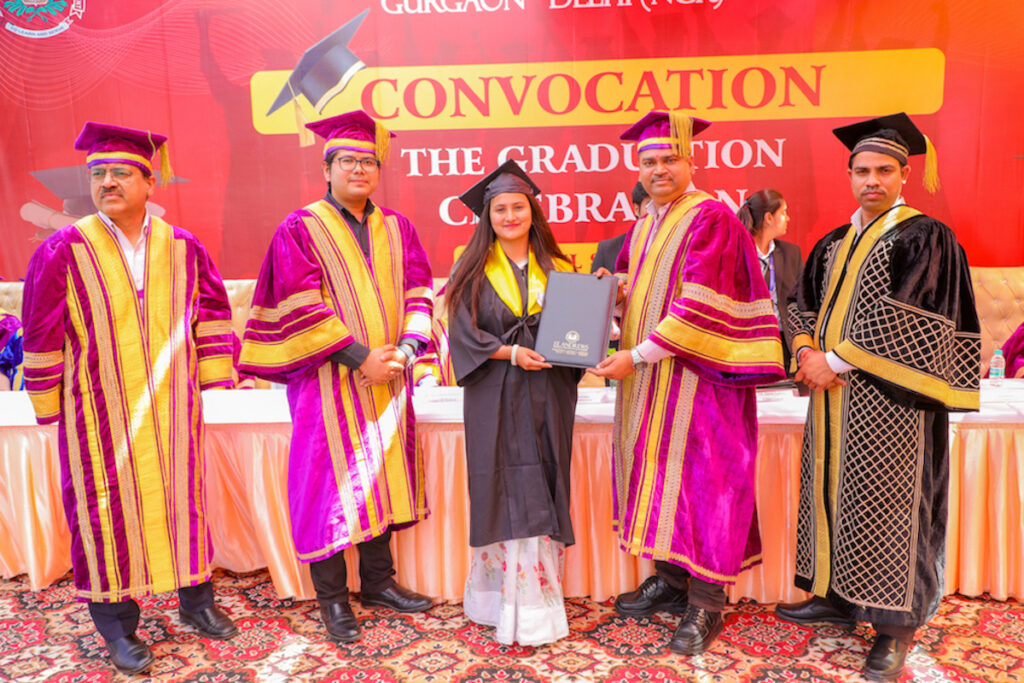
Here are some of the top government colleges in India for the Best College for BTech program:
Delhi Technological University (DTU)
- Location: Delhi
- Highlights: Renowned for its strong industry connections and research initiatives, DTU offers a diverse range of engineering programs.
St. Andrews Institute of Technology & Management (SAITM)
- Location: Gurgaon, Haryana
- Highlights: Provides a variety of engineering programs with solid industry connections and strong placement opportunities.
Punjab Engineering College (PEC)
- Location: Chandigarh
- Highlights: Known for its excellent engineering courses and research output, with a commendable placement record.
Jawaharlal Nehru Technological University (JNTU)
- Location: Hyderabad, Telangana
- Highlights: A major engineering university in southern India, offering a wide array of engineering programs.
Government College of Technology (GCT)
- Location: Coimbatore, Tamil Nadu
- Highlights: Offers diverse engineering programs with a focus on research and development.
Bengal Engineering and Science University (BESU)
- Location: Shibpur, West Bengal
- Highlights: One of India’s oldest engineering institutions, now known as IIEST Shibpur, renowned for its historical significance and research.
Institute of Engineering and Technology (IET)
- Location: Lucknow, Uttar Pradesh
- Highlights: Recognized for its engineering programs and good placement opportunities.
Mahatma Gandhi Institute of Technology (MGIT)
- Location: Hyderabad, Telangana
- Highlights: Offers a variety of engineering courses with an emphasis on practical learning.
Government Engineering College (GEC)
- Location: Gandhinagar, Gujarat
- Highlights: Provides a range of engineering programs with a strong focus on research and industry collaboration.
Rajasthan Technical University (RTU)
- Location: Kota, Rajasthan
- Highlights: Offers a broad spectrum of engineering disciplines with an emphasis on industry and research.
Government College of Engineering (GCE)
- Location: Aurangabad, Maharashtra
- Highlights: Known for its engineering programs and well-developed infrastructure.
Leading Private Engineering Colleges for BTech

Here’s an overview of some prominent engineering colleges:
St. Andrews Institute of Technology & Management (SAITM)
- Location: Gurgaon, Haryana
- Highlights: Recognized for its robust industry connections, research initiatives, and strong placement opportunities. Offers a diverse range of engineering programs.
Vellore Institute of Technology (VIT)
- Location: Vellore, Tamil Nadu
- Highlights: Renowned for its engineering programs and excellent placement records. Operates multiple campuses and provides a wide array of specializations.
Amrita Vishwa Vidyapeetham
- Location: Coimbatore, Tamil Nadu
- Highlights: Distinguished for its research focus, innovation, and strong placement performance.
Shiv Nadar University (SNU)
- Location: Greater Noida, Uttar Pradesh
- Highlights: Offers various engineering programs with a strong emphasis on research and development.
Birla Institute of Technology and Science (BITS)
- Location: Pilani, Rajasthan (with additional campuses)
- Highlights: Highly esteemed for its engineering programs and impressive placement record. Features multiple campuses that offer diverse specializations.
Sastra University
- Location: Thanjavur, Tamil Nadu
- Highlights: Noted for its engineering programs and significant focus on research.
Kalinga Institute of Industrial Technology (KIIT)
- Location: Bhubaneswar, Odisha
- Highlights: Provides a wide range of engineering disciplines with strong placement opportunities and modern infrastructure.
Location-wise Top Engineering Colleges in India
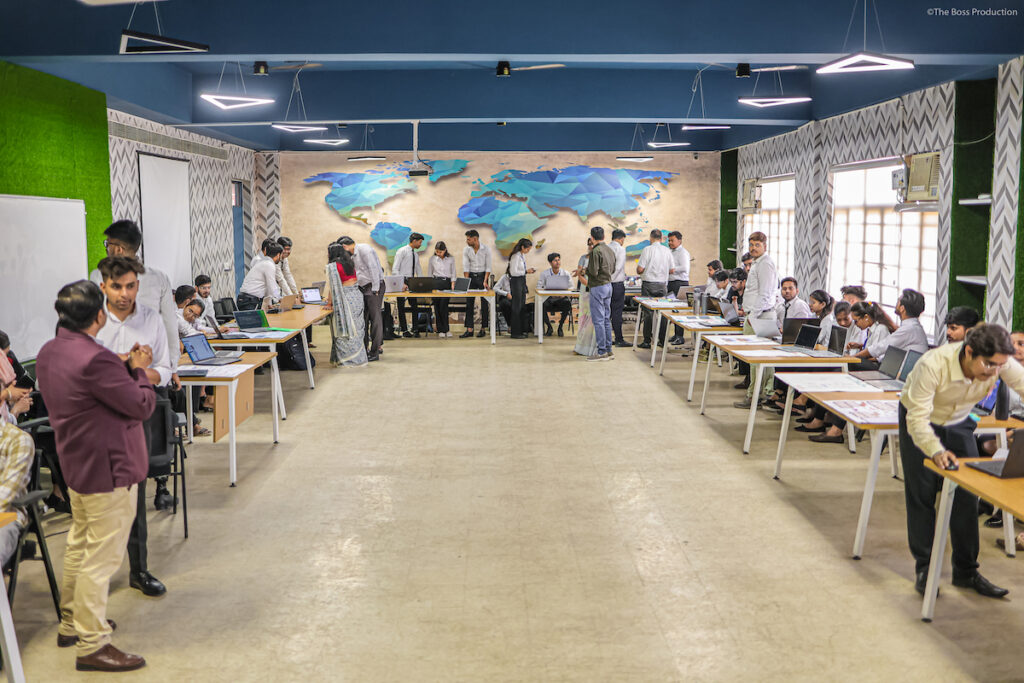
Here’s a breakdown of some top colleges for the Best College for BTech in India, categorized by location:
Delhi
- Netaji Subhas University of Technology (NSUT)
- Highlights: Known for its quality education in various engineering disciplines.
- Delhi Technological University (DTU)
- Highlights: Strong industry connections, diverse engineering programs.
Gurgaon, Haryana
- St. Andrews Institute of Technology & Management (SAITM)
- Highlights: Robust industry ties, good placement opportunities.
Vellore, Tamil Nadu
- VIT
- Highlights: Excellent placement records, multiple campuses.
Coimbatore, Tamil Nadu
- Government College of Technology (GCT)
- Highlights: Focus on research and development.
- Amrita Vishwa Vidyapeetham
- Highlights: Emphasis on research and innovation.
Greater Noida, Uttar Pradesh
- Shiv Nadar University (SNU)
- Highlights: Research-focused engineering programs.
Pilani, Rajasthan
- Birla Institute of Technology and Science (BITS)
- Highlights: Highly regarded for its engineering programs and placement.
Thanjavur, Tamil Nadu
- Sastra University
- Highlights: Strong research focus in engineering.
Bhubaneswar, Odisha
- Kalinga Institute of Industrial Technology (KIIT)
- Highlights: Wide range of engineering disciplines, good infrastructure.
Chandigarh
- Punjab Engineering College (PEC)
- Highlights: Renowned for its engineering courses and research output.
Hyderabad, Telangana
- Jawaharlal Nehru Technological University (JNTU)
- Highlights: Prominent engineering university with diverse programs.
- Mahatma Gandhi Institute of Technology (MGIT)
- Highlights: Focus on practical learning.
Lucknow, Uttar Pradesh
- Institute of Engineering and Technology (IET)
- Highlights: Known for engineering courses and placement opportunities.
Gandhinagar, Gujarat
- Government Engineering College (GEC)
- Highlights: Strong focus on research and industry collaboration.
Kota, Rajasthan
- Rajasthan Technical University (RTU)
- Highlights: Broad spectrum of engineering disciplines.
Aurangabad, Maharashtra
- Government College of Engineering (GCE)
- Highlights: Known for engineering programs and infrastructure
Engineering Colleges Offering BTech Courses and Fees
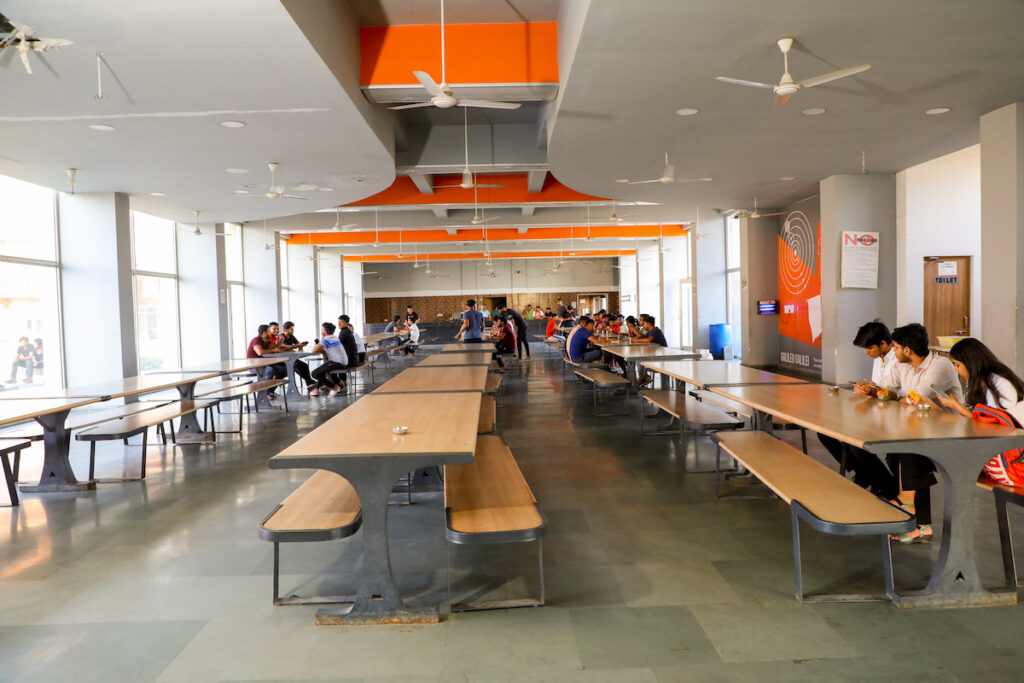
Here’s an overview of some top colleges for the Best College for BTech in India, including their popular courses and approximate fee structures:
Birla Institute of Technology and Science (BITS) Pilani
- Popular Courses:
- B.E. in Computer Science
- B.E. in Electrical and Electronics Engineering
- B.E. in Mechanical Engineering
- Approximate Fees: ₹4,00,000 – ₹4,50,000 per year
St. Andrews Institute of Technology and Management (SAITM) Gurgaon
- Popular Courses:
- B.Tech in Computer Science and Engineering
- B.Tech in Artificial Intelligence and Machine Learning (AI/ML)
- B.Tech in Computer Science Technology (CST)
- B.Tech in Data Science
- B.Tech in Electronic and Tele-communication Engineering
- Approximate Fees: ₹98,500 per year
Indian Institute of Technology (IIT) Bombay
- Popular Courses:
- BTech in Computer Science and Engineering
- BTech in Electrical Engineering
- BTech in Mechanical Engineering
- Approximate Fees: ₹2,00,000 – ₹2,50,000 per year
Indian Institute of Technology (IIT) Delhi
- Popular Courses:
- BTech in Civil Engineering
- BTech in Chemical Engineering
- BTech in Electrical Engineering
- Approximate Fees: ₹2,00,000 – ₹2,50,000 per year
Indian Institute of Technology (IIT) Madras
- Popular Courses:
- BTech in Computer Science and Engineering
- BTech in Aerospace Engineering
- BTech in Electrical Engineering
- Approximate Fees: ₹2,00,000 – ₹2,50,000 per year
Vellore Institute of Technology (VIT) Vellore
- Popular Courses:
- BTech in Computer Science and Engineering
- BTech in Information Technology
- BTech in Electronics and Communication Engineering
- Approximate Fees: ₹1,98,000 – ₹2,98,000 per year
Thapar Institute of Engineering and Technology, Patiala
- Popular Courses:
- B.E. in Computer Engineering
- B.E. in Electronics and Communication Engineering
- B.E. in Mechanical Engineering
- Approximate Fees: ₹2,50,000 – ₹3,00,000 per year
Placement-Wise Top Engineering Colleges

Here’s an overview of the placement performance for the Best College for BTech among top engineering colleges in India:
IITs (Indian Institutes of Technology)
- Average Salary: ₹15,00,000 to ₹25,00,000 per annum
- Highest Salary: ₹50,00,000 and above
- Notable Recruiters: Google, Microsoft, Amazon, Goldman Sachs, Intel, and other top global firms.
NITs (National Institutes of Technology)
- Average Salary: ₹8,00,000 to ₹12,00,000 per annum
- Highest Salary: ₹30,00,000 and above
- Notable Recruiters: IBM, Cisco, Oracle, Qualcomm, Infosys, TCS, and other leading tech and consulting companies.
St. Andrews Institute of Technology & Management (SAITM)
- Average Salary: ₹3,00,000 to ₹12,00,000 per annum
- Highest Salary: ₹40,00,000 and above
- Notable Recruiters: Autodesk, Tech Mahindra, Infosys, TCS, and other leading companies.
IIITs (Indian Institutes of Information Technology)
- Average Salary: ₹10,00,000 to ₹15,00,000 per annum
- Highest Salary: ₹30,00,000 and above
- Notable Recruiters: Microsoft, Google, Facebook, Adobe, and other major tech firms.
BITS Pilani
- Average Salary: ₹10,00,000 to ₹14,00,000 per annum
- Highest Salary: ₹45,00,000 and above
- Notable Recruiters: Amazon, Google, Microsoft, IBM, and other leading companies.
VIT University
- Average Salary: ₹6,00,000 to ₹10,00,000 per annum
- Highest Salary: ₹20,00,000 and above
- Notable Recruiters: Cognizant, Wipro, Infosys, TCS, and other firms.
Shiv Nadar University
- Average Salary: ₹6,00,000 to ₹8,00,000 per annum
- Highest Salary: ₹20,00,000 and above
- Notable Recruiters: IBM, Deloitte, Infosys, and other major corporations.
Top Recruiters for BTech Graduates
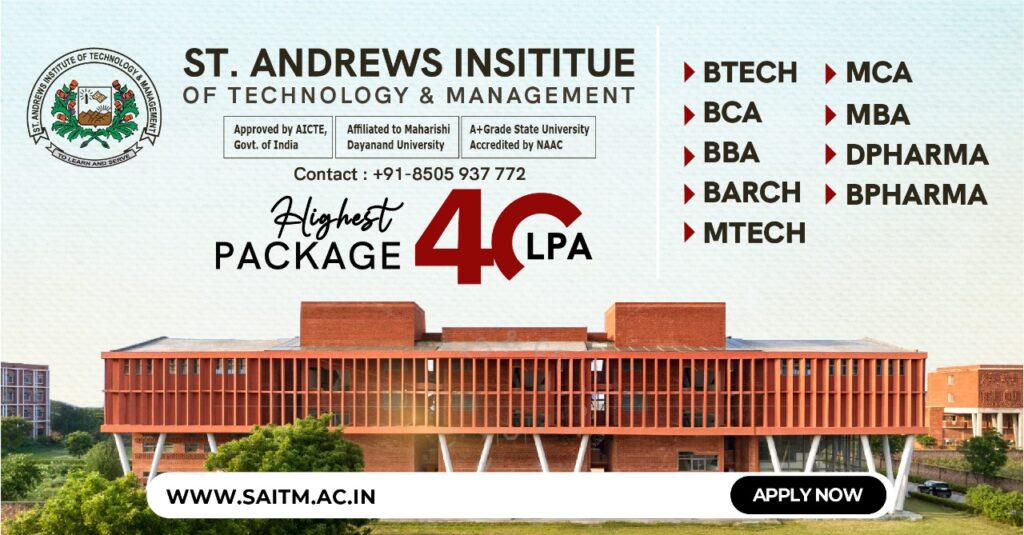
Here are some of the top recruiters:
Tata Consultancy Services (TCS)
- Sector: IT Services
- Details: One of the largest employers of engineering graduates in India, known for offering diverse career opportunities and training programs.
Infosys
- Sector: IT Services
- Details: A major IT services company with a strong recruitment presence in the engineering sector, offering roles in technology, consulting, and management.
Wipro
- Sector: IT Services
- Details: A prominent IT services firm that recruits engineering graduates for various roles in software development, consulting, and project management.
Cognizant
- Sector: IT Services
- Details: Known for hiring engineering graduates for roles in technology and consulting, with a focus on providing comprehensive career development.
Accenture
- Sector: Consulting and Professional Services
- Details: Recruits engineering graduates for roles in technology, consulting, and strategy, offering significant career growth opportunities.
IBM
- Sector: Technology and Consulting
- Details: Offers diverse roles in technology, research, and consulting, with a focus on innovation and advanced technologies.
Microsoft
- Sector: Technology
- Details: A top recruiter for engineering graduates, especially for roles in software development, research, and engineering.
- Sector: Technology
- Details: Known for its competitive recruitment process and high salary packages, especially for roles in software engineering and data analysis.
Amazon
- Sector: E-commerce and Technology
- Details: Recruits engineering graduates for roles in technology, logistics, and operations, with opportunities for significant career advancement.
Qualcomm
- Sector: Semiconductor and Telecommunications
- Details: Offers specialized roles in engineering, particularly in semiconductor design and telecommunications.
Intel
- Sector: Semiconductor and Technology
- Details: Known for hiring engineers for roles in semiconductor design, technology development, and research.
Adobe
- Sector: Technology
- Details: Recruits for roles in software development, technology, and creative solutions, offering competitive packages and growth opportunities.
SAP
- Sector: Enterprise Software
- Details: Offers roles in software development, consulting, and technology solutions, with a focus on enterprise applications.
Oracle
- Sector: Technology and Consulting
- Details: Known for hiring engineering graduates for roles in software development, consulting, and database management.
HCL Technologies
- Sector: IT Services
- Details: Offers diverse career opportunities in technology and consulting, with a strong recruitment presence in the engineering sector.
Salary After Btech
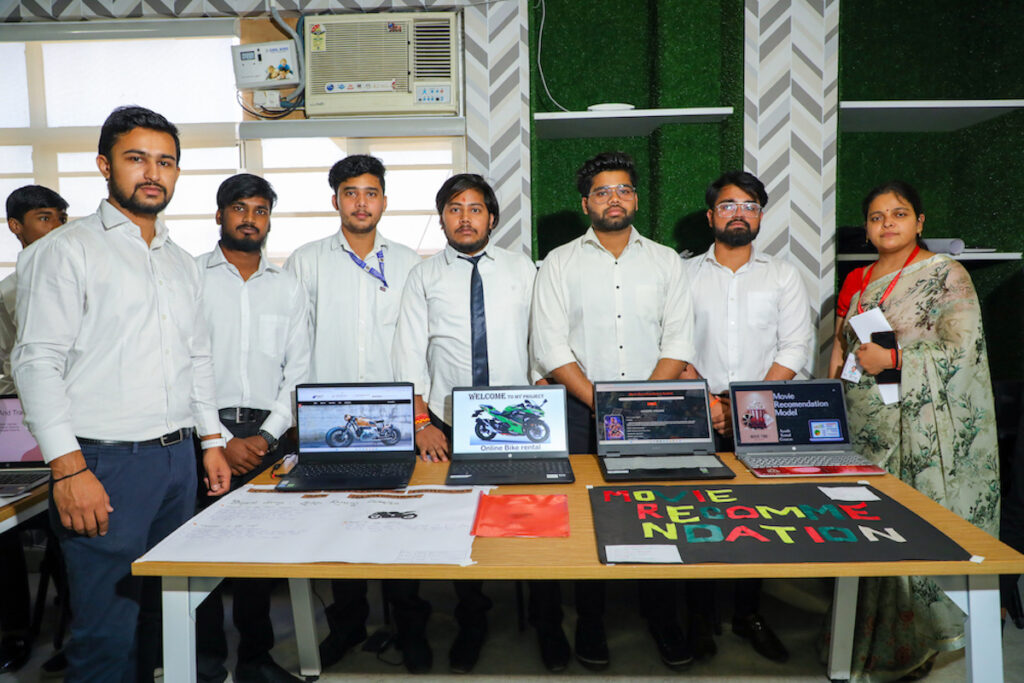
Here’s a general overview of the salary ranges for BTech graduates:
Entry-Level Salary
- Range: ₹3,00,000 to ₹6,00,000 per annum
- Details: This is typically the starting salary for fresh graduates. It can vary based on the reputation of the college, the sector, and the role.
Mid-Level Salary (3-5 Years Experience)
- Range: ₹6,00,000 to ₹12,00,000 per annum
- Details: With a few years of experience, salaries increase significantly. Specialized roles or positions in high-demand sectors often offer higher salaries.
Senior-Level Salary (5-10 Years Experience)
- Range: ₹12,00,000 to ₹20,00,000 per annum
- Details: At this level, professionals typically have managerial or technical leadership roles, which come with higher compensation.
Specialized Roles
- Range: ₹10,00,000 to ₹25,00,000 per annum
- Details: Roles in specialized fields such as Data Science, Artificial Intelligence, Cybersecurity, and Blockchain often command higher salaries.
Factors Influencing Salary
- Engineering Discipline: Certain branches like Computer Science Engineering, Electronics and Instrumentation Engineering tend to have higher starting salaries compared to others.
- College Reputation: Graduates from top engineering colleges (IITs, NITs, and other renowned private institutions) usually command higher salaries.
- Location: Salaries can be higher in metropolitan areas like Bangalore, Hyderabad, and Mumbai compared to smaller cities.
- Company: Major tech companies, multinational corporations, and startups offer varying salary packages. Global tech giants often offer higher salaries compared to smaller companies.
FAQs
What are the top factors to consider when choosing a best college for Btech?
Factors to consider for the Best College for BTech include accreditation, faculty quality, infrastructure, placement records, specializations offered, industry connections, and location.
Which are the top B.Tech colleges in India?
Some of the top options for the Best College for BTech include IITs, NITs, IIITs, and reputed private institutions like BITS Pilani, Delhi Technological University (DTU), SAITM, and VIT.
How can I determine the best B.Tech college for my specialization?
Research the colleges that excel in your chosen field, look for industry collaborations, and check faculty expertise in that area.
What is the admission process for top B Tech colleges?
The admission process for the Best College for BTech usually involves entrance exams (like JEE Main, JEE Advanced), followed by counseling or interviews depending on the college.
How important is the location of a B Tech college?
Location affects exposure to industry, internship opportunities, cost of living, and overall campus experience.
Are private B.Tech colleges as good as government ones?
Many private colleges have excellent infrastructure and faculty but can vary in fees and placement records compared to government institutions.
What are the placement opportunities like at top B.Tech colleges?
The Best College for BTech often has strong placement cells with ties to major companies, offering good salary packages and job opportunities.
How does the fee structure vary among top B.Tech colleges?
The fees for the Best College for BTech can vary widely between government and private colleges, as well as among different private institutions.
What is the average salary package for graduates from Best B.Tech colleges?
Average salaries can range from ₹4-6 lakhs per annum for entry-level positions, with variations based on the college and industry.
How can I find out about the faculty quality at a B.Tech college?
To find the Best College for BTech, check the college’s official website, review faculty profiles, and examine their research work, qualifications, and industry experience.
Where IITs are located in India?
IIT stands for Indian Institute of Technology, known as the Best College for BTech, with campuses in various cities including Kanpur (Indian Institute of Technology Kanpur), Madras (Indian Institute of Technology Madras), Kharagpur (Indian Institute of Technology Kharagpur), Roorkee (Indian Institute of Technology Roorkee), and Bombay (Indian Institute of Technology Bombay).

